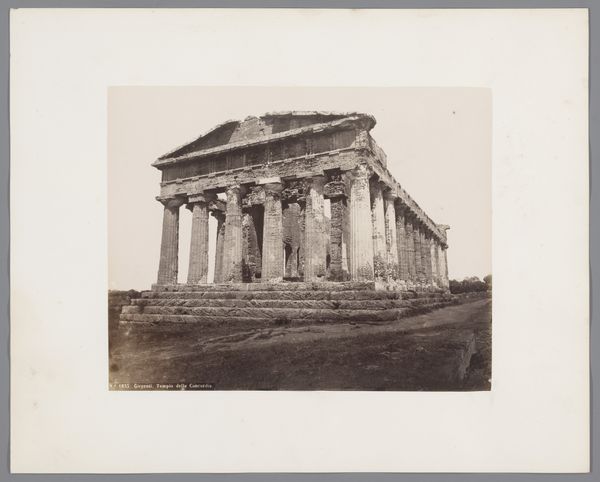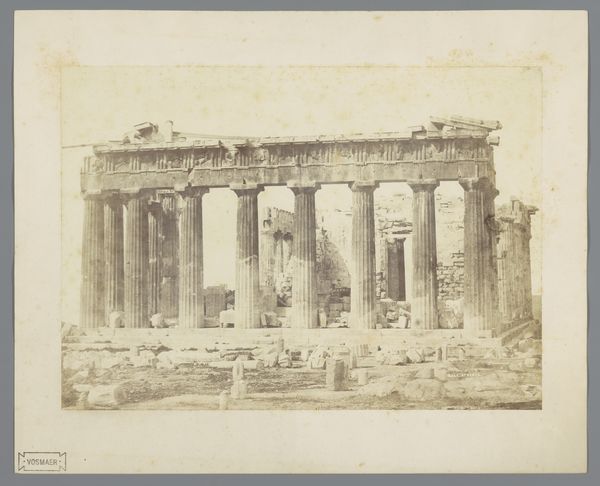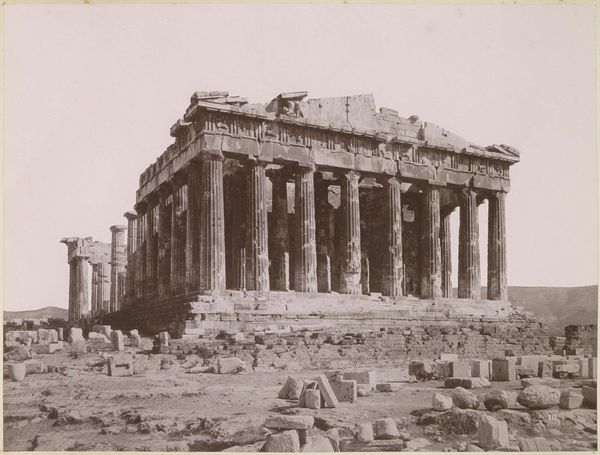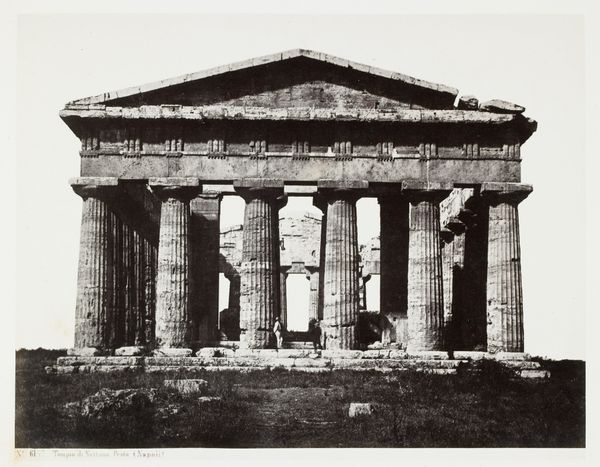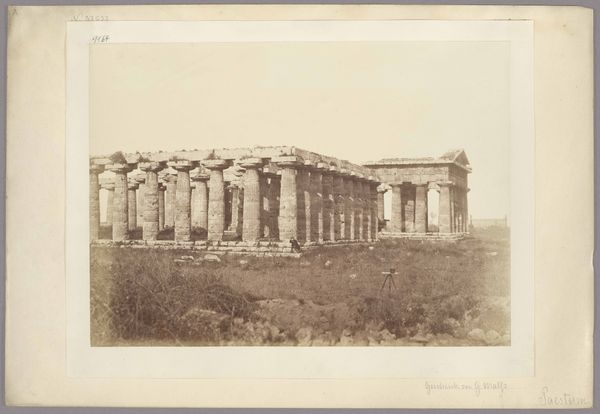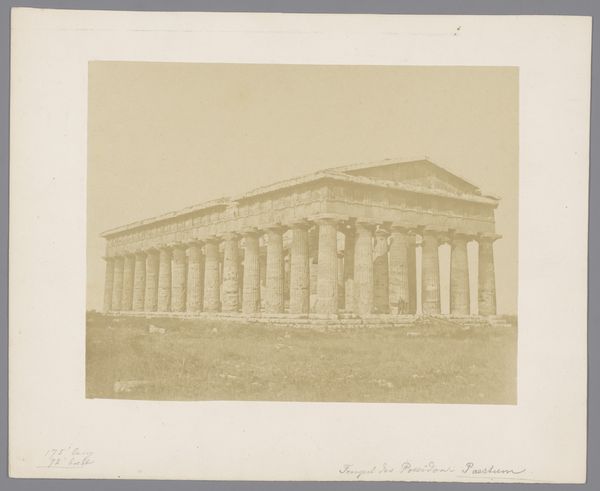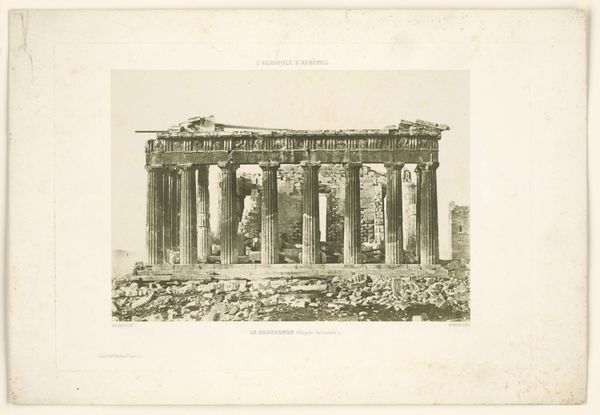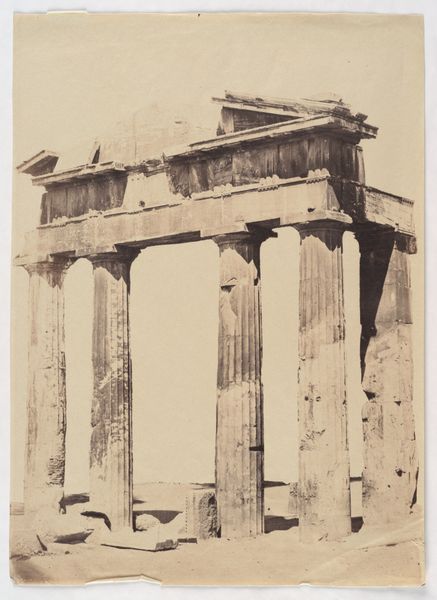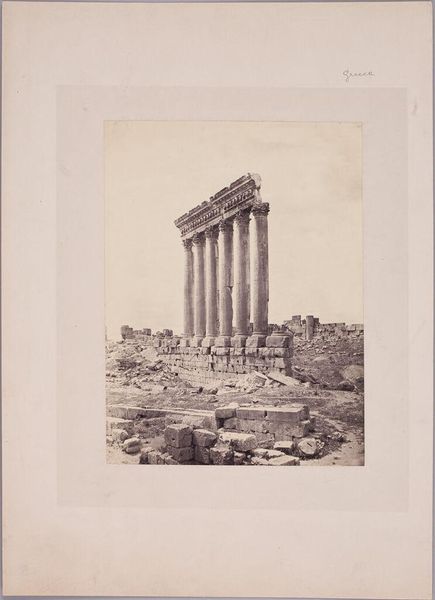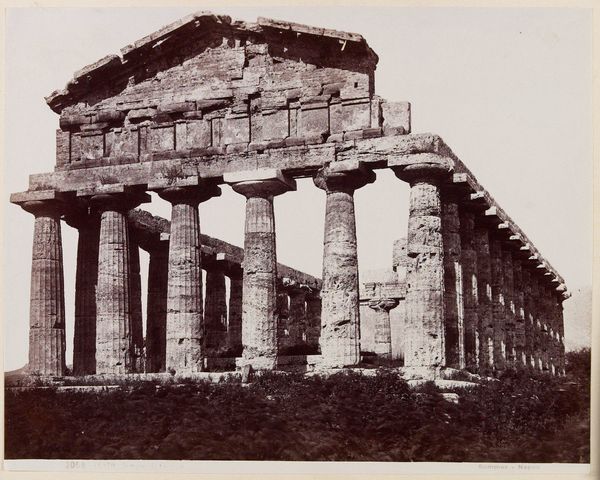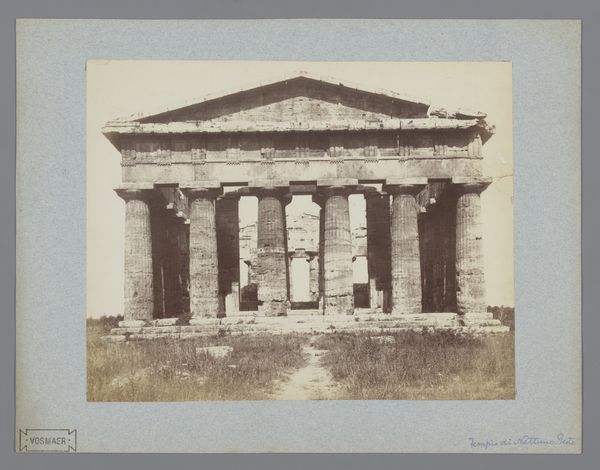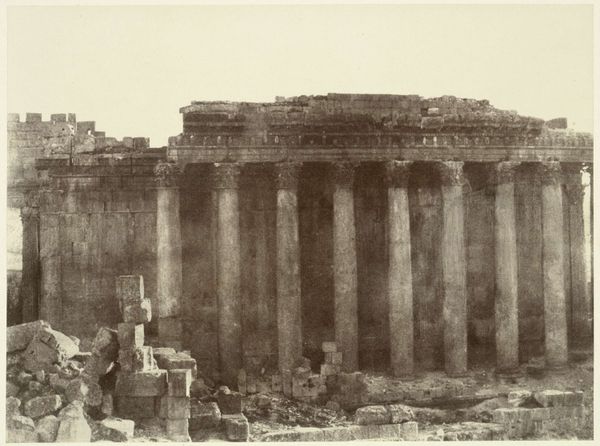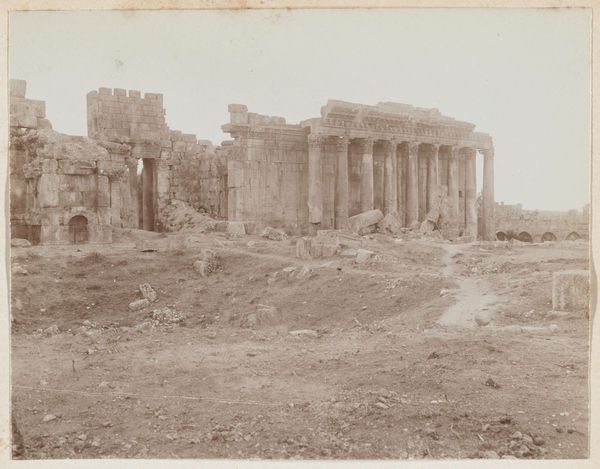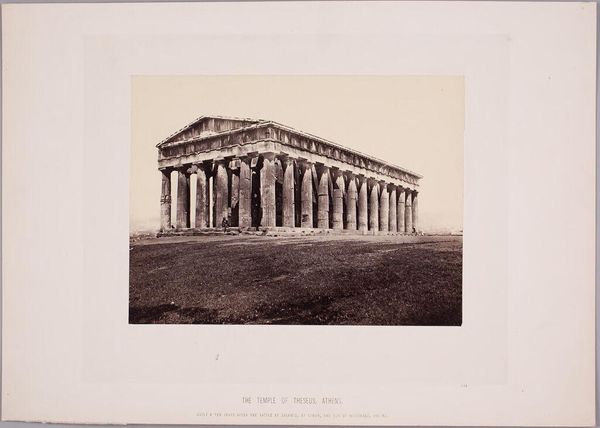
photography, architecture
#
water colours
#
sculpture
#
greek-and-roman-art
#
landscape
#
photography
#
ancient-mediterranean
#
architecture
Dimensions: height 206 mm, width 256 mm, height 309 mm, width 507 mm
Copyright: Rijks Museum: Open Domain
Giuseppe Incorpora captured this image of the Tempio della Concordia in Girgenti, using photographic materials that were becoming increasingly accessible during his time. The sepia tones in the image are directly related to the chemical processes involved in early photography, specifically the use of silver salts and developing agents. Look closely, and you'll notice the way the light interacts with the textured surface of the photographic paper, creating subtle variations in tone and depth. Incorpora, like other photographers of the era, was part of a growing industry that democratized image-making, challenging traditional hierarchies between art and craft. The act of capturing and reproducing images became less about individual artistic skill and more about technological proficiency and access to materials. This shift reflected broader changes in society, as industrialization and mass production transformed the way we create and consume art. It serves as a reminder that the meaning of a photograph extends beyond its subject matter, encompassing the materials, processes, and social contexts in which it was made.
Comments
No comments
Be the first to comment and join the conversation on the ultimate creative platform.
